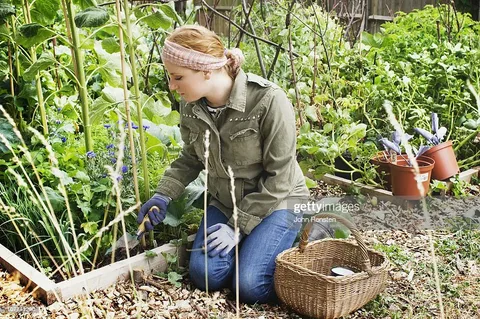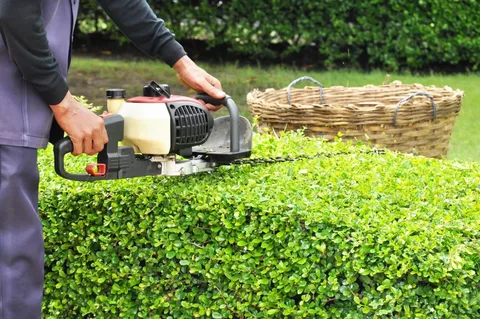The Ultimate Guide to Organic Gardening at Home
Organic gardening is all about growing plants without the use of synthetic pesticides, fertilizers, or genetically modified organisms (GMOs). It promotes healthier soil, plants, and a more sustainable environment. Whether you’re a seasoned gardener or a beginner, transitioning to organic gardening can be both fulfilling and rewarding.
Why Choose Organic Gardening?
- Healthier Produce: Organic fruits and vegetables are free from harmful chemicals and pesticides, making them safer to eat. Plus, they often taste better!
- Environmental Benefits: Organic gardening helps to conserve water, reduce pollution, and promote biodiversity.
- Sustainable Practices: Organic methods help maintain the natural balance in ecosystems, promoting long-term sustainability for your garden.
Getting Started with Organic Gardening

- Choose the Right Location: Select a sunny spot for your garden, as most vegetables and herbs thrive in at least 6-8 hours of sunlight per day.
- Start with Healthy Soil: The foundation of any good organic garden is healthy soil. Start by testing your soil’s pH and nutrient levels. Use compost, organic matter, and natural soil amendments to enrich your soil.
- Use Non-Toxic Fertilizers: Instead of synthetic fertilizers, opt for organic alternatives like compost, manure, or organic fertilizers. These improve soil health and provide necessary nutrients to your plants.
- Mulch for Moisture: Mulch helps retain moisture in the soil, suppresses weeds, and adds nutrients as it breaks down. Use organic mulch like straw, wood chips, or shredded leaves.
Organic Pest Control
- Encourage Beneficial Insects: Ladybugs, bees, and other insects help keep pest populations in check. Plant flowers like lavender or marigolds to attract them to your garden.
- Natural Sprays: Neem oil, garlic spray, and diatomaceous earth are great organic alternatives to chemical pesticides.
- Companion Planting: Certain plants naturally repel pests. For example, planting basil with tomatoes can deter mosquitoes and other harmful insects.
Best Organic Plants to Grow at Home
- Tomatoes: A favorite in organic gardens, tomatoes are easy to grow and thrive in sunny spots.
- Lettuce: A fast-growing, low-maintenance plant that does well in organic gardens.
- Herbs: Basil, mint, parsley, and rosemary are excellent choices for organic gardening. They’re not only great for cooking but also easy to grow.
- Carrots: These root vegetables are ideal for organic gardening due to their minimal need for pesticides.
Maintenance and Harvesting

- Water Wisely: Water your garden deeply but infrequently to encourage strong root growth. Early mornings are the best time to water.
- Regular Weeding: Weeds can compete with your plants for nutrients, so be sure to pull them regularly.
- Harvesting: Pick your produce at the peak of its ripeness to enjoy the best flavor and nutritional value.
Final Thoughts
Organic gardening may require more patience and effort than conventional gardening, but the rewards are worth it. You’ll have healthier plants, a sustainable garden, and produce free from harmful chemicals. Whether you’re growing vegetables, herbs, or flowers, organic gardening helps you cultivate a more eco-friendly and healthy environment for both you and your family.
